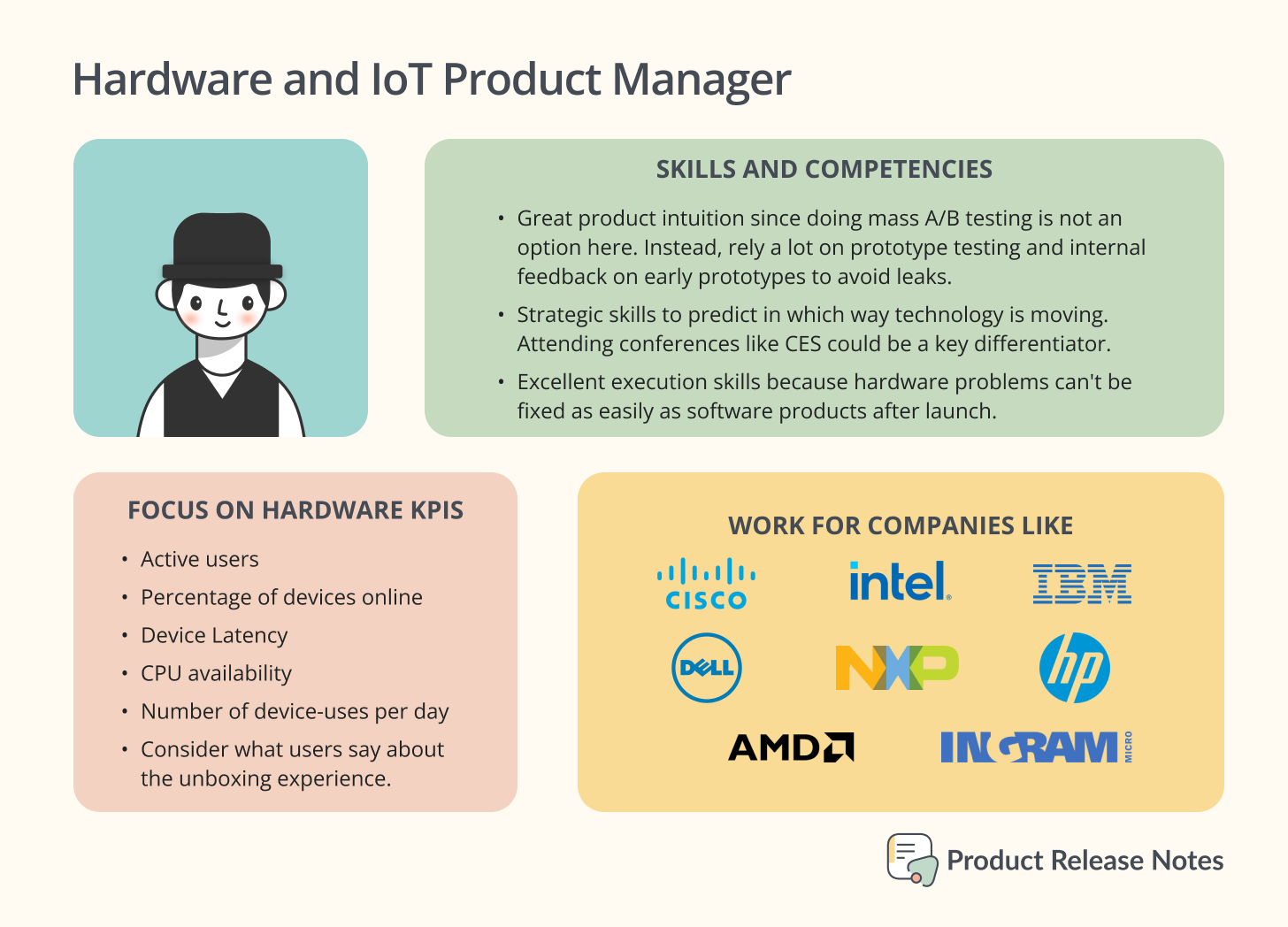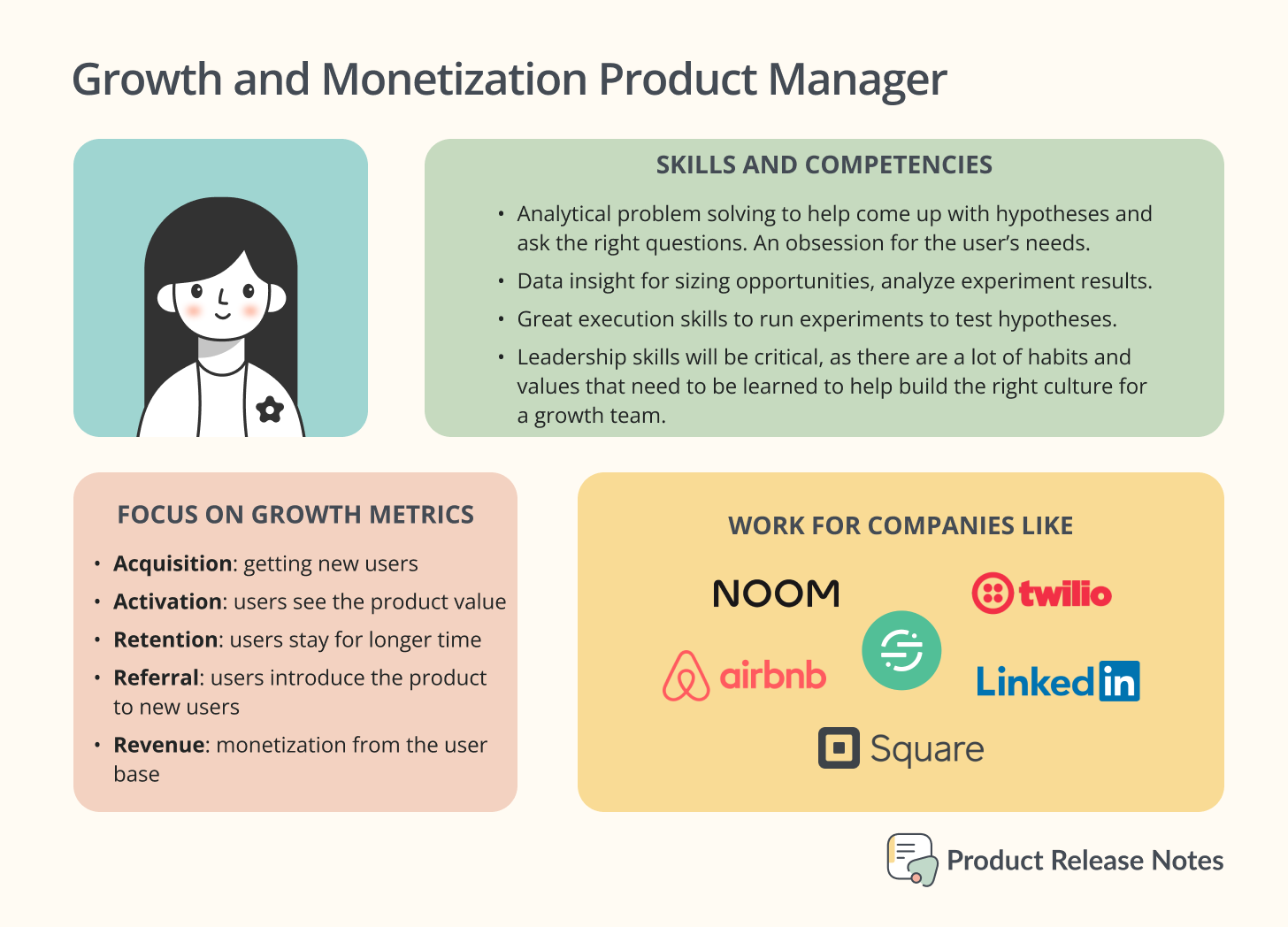What You Need To Know About The Different Product Manager Roles - Part 2
Download the PDF and images with all the different Product Management roles and flavors.
Hi all! I’m back from vacations and ready to continue with the Part 2 of the series. If you missed the Part 1 here it is:
These posts are meant to answer Justin Andersun question:
I’m finding his writing about clear thinking and creative process very inspiring, that will make your ideas flow. Go check it out yourself!
Platforms and Infrastructure Product Manager
Platform product managers are responsible for building foundational components like APIs, UI widgets, and infrastructure components that other teams use to build products. Platforms can be internal-facing or external-facing and are meant to enable other teams to solve the use cases they choose. The key difference between platforms and products is that products solve a known set of use cases directly, while platforms enable other teams to solve the use cases they choose.
Focus on
Being a platform product manager involves considering both the developers using the platform and the end-users they serve. Measuring platform health and defining success metrics for the team are important tasks. such as a decrease in development time or an increase in their key success metrics. There may be uncertainty due to changes in product team goals or lack of communication.
Skills and Competencies
Product Managers for platforms and infrastructure need technical skills in coding to spot usability bugs in APIs and imagine possible functionalities. They also need product skills to understand use cases and choose coherent sets of functionality to launch. Strategic skills are necessary to set a long-term roadmap based on future product needs. It's important to design around three different products to ensure the platform will be useful and flexible. Mistakes in platforms can be difficult to fix, so having a backward compatibility is crucial.
Hardware and IoT Product Manager
Hardware PMs focus on building physical products while the Internet of Things (IoT) combines both hardware and software to create products such as smartphones, speakers, cameras, and fitness trackers. Great product examples of this are PMs working for the iPhone, Amazon Alexa, Nest camera, Fitbit band, Apple Watch and more.
Focus on
Hardware product managers rely on prototype testing and internal feedback on early prototypes instead of A/B testing. They follow a fixed product development cycle with phases that go from initial concept to mass production and need to prioritize efficiently. Hardware PMs also travel to visit factories where their products are made and are responsible for packaging and considering sustainable packaging.
Daniel Elizalde, a Product Executive turned Coach and Advisor, strongly recommends that these PMs need to incorporate the five layers of the IoT technology stack into their product strategy and roadmap:
Device Hardware
Device Software
Communication
Cloud Platform
Cloud Applications
Skills and Competencies
Product managers for hardware and internet of things devices need strategic skills, excellent product intuition, and good execution due to the high costs and time involved in producing hardware. It is important to predict future trends and incorporate components that will be supported for a long time. Keeping up-to-date with technology trends and attending conferences like CES can also help to develop modern hardware products.
Growth Product Manager
This particular role has gained a lot of relevance recently and it’s not for nothing. A Growth Product Manager is a role in a company focused on acquiring or monetizing new users rather than building new functionality. They work on all parts of the product, but often focus on key flows like signup or purchasing.
Focus on
Growth Product Managers focus on engaging "adjacent users" - those who are aware of a product but struggle to become engaged users. They aim to understand why these users are struggling, build empathy for them, and solve their problems. Growth PMs also own success metrics such as revenue and active users, and measure success through A/B testing.
Skills and Competencies
Analytical problem-solving, data insight, and flawless execution skills are important for growth product managers. They need to be able to come up with hypotheses, analyze experiment results, and lead a team to build the right culture for growth and monetization. Leadership skills are also critical for developing the necessary habits and values.
Machine Learning (ML), Artificial Intelligence (AI) and Data Product Manager
A ML, AI and Data Product Manager works with data scientists to improve product experiences by applying pattern matching across big data sets. They use machine learning to improve ads, personalize content, recognize images, suggest products, and more. Ethical considerations are especially important for this PM.
Focus on
These PMs use data to address customer needs and explore new use cases or target markets. They navigate tradeoffs in machine learning models and may suggest new features or sources of training data to improve performance. They may also prioritize timeliness over using more data models and tuning them in various ways to improve their accuracy or speed. The PM may recommend using less data to get faster results or identifying new features or sources of training data to improve the algorithms.
Skills and Competencies
Product Managers in Machine Learning and AI need to have a good understanding of technical capabilities and limitations, as well as a deep understanding of the customer or business problem they are trying to solve. They also need to be comfortable with data, with the ability to open up SQL to analyze raw data, identify potential problems, and seek inspiration. Collaboration with engineers and strategic skills are also important in this field. Additionally, finding good sources of data and identifying good features are becoming more important differentiators as machine learning algorithms become more widely available.
Regulated Industries Product Manager
Product Managers in regulated industries such as healthcare, payments, or financial services have similar roles to other industries but with added government regulations.
Focus on
Working in a regulated industry can provide the opportunity to make a significant impact on people's lives, as these industries are regulated due to their importance. However, there are often more constraints and slower movement due to organizational complexity and the need to work closely with lawyers to understand regulations. Despite these challenges, joining an older institution new to digital transformation can offer valuable information and opportunities for innovation.
Skills and Competencies
Product managers in regulated industries must balance customer needs with regulations and demonstrate leadership skills to push boundaries and persuade stakeholders to take risks or change processes. They should not simply view regulations as rigid checkboxes for engineers to follow. Creativity and deep understanding of the regulatory environment are important for success in these industries.
Other roles worth mention
Product Managers working in Non-Tech Companies
Unlike tech companies where product management and customer-focused approaches are already valued, product managers at non-tech companies need to work harder to educate others about their role and importance. However, non-tech companies offer greater flexibility of location and product variety. Over-communication is key to success in these situations.
Product Manager working in Government and Social Organizations
Product managers tired of the tech industry, should consider working in government and social impact organizations as they offer opportunities to make a difference in the community. Working in these areas can provide fulfilling mission-driven work and the potential for significant impact. However, be prepared to face bureaucracy and scrutiny when working towards transforming an organization to be more customer-centered.
Paid subscribers get exclusive access to my Google Drive to download the PDF version with all the roles and high resolution images. Go get yours!👇
Keep reading with a 7-day free trial
Subscribe to Product Release Notes to keep reading this post and get 7 days of free access to the full post archives.











